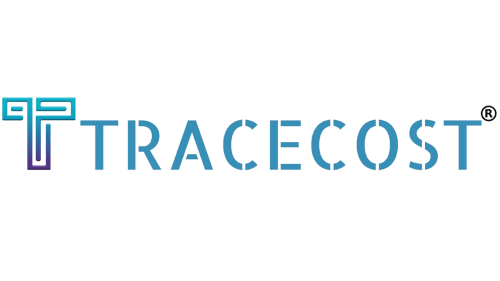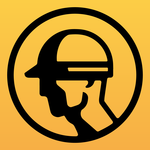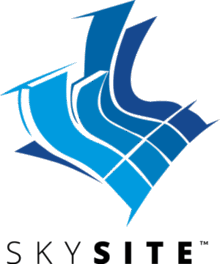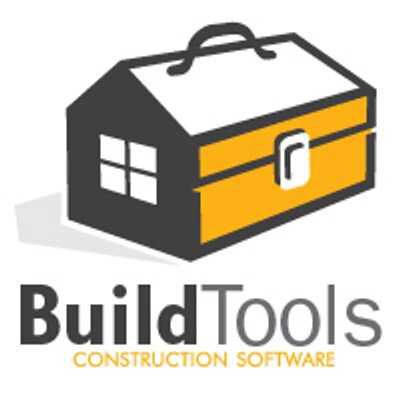Most construction project management software may be accessed from numerous devices and platforms. This enables project managers, contractors, and team members to collaborate and access project information using any device with an internet connection. Some software even includes mobile apps for on-the-go access. This flexibility and accessibility make it easier for teams to keep informed and on track during the construction process.
List of 20 Best Construction Project Management Software
Nway Construction ERP solution for businesses in the construction and infrastructure industries. This comprehensive software is specifically designed to meet the diverse needs of these sectors, providing efficient tools to streamline operations and i...Read More Nway Construction ERP
Buildern is a solution for all your residential construction management needs. Our user-friendly software simplifies the entire process, from initial planning to final completion. With customizable features designed for your company and project speci...Read More Buildern
SitePass - a software that transforms the way you manage workforce compliance and safety. Designed with user-friendly tools, SitePass streamlines onboarding, training, and monitoring processes to ensure seamless adherence to all regulatory standards...Read More SitePass
ARC Facilities - a leading provider of digital and print solutions for diverse industries. Our mission is to provide unparalleled service and superior outcomes. With a satisfied customer base of 90,000 and counting, you can count on ARC Facilities fo...Read More ARC Facilities
Experience hassle-free project collaboration and document management with PlanGrid. Keep your team connected and on track with real-time updates and insights. This construction management software streamlines project timelines and budgets for efficie...Read More PlanGrid
Cx Observer is a AI-powered solution designed to simplify and monitor the entire commissioning process. This state-of-the-art software offers a variety of features such as automated progress monitoring, personalized form building, documentation manag...Read More Cx Observer
Tracecost is a project management solution that simplifies your workflow by bringing your team, applications, and devices together in a single cloud-based platform. With seamless data integration, Tracecost enhances communication and collaboration fo...Read More Tracecost
Xpedeon is a on-premise ERP software tailored for the Engineering, Infrastructure, and Construction sector. With its all-inclusive management system, businesses can efficiently oversee contract management, pricing, quotes, auditing, and HVAC estimati...Read More Xpedeon
BuildBook solution for modern builders seeking to streamline their construction management process. With a comprehensive set of powerful and user-friendly tools, it empowers builders to effectively manage projects, increase client satisfaction, and d...Read More BuildBook
InLoox is a leading project management software that stands out for its seamless integration with Microsoft Outlook. It offers a user-friendly and efficient solution for project management tasks such as managing projects, documents, resources, and tr...Read More InLoox
InEight is a leading construction management platform that streamlines project controls and enhances operational efficiency. Its advanced data, fluid workflows, and cutting-edge analytics enable users to effectively manage project scope, cost, and sc...Read More InEight
Newton E-Site Management, a dynamic software built to optimize construction site management for builders and companies. With its user-friendly interface and secure cloud storage, all site-related data can be easily accessed. Customizable user permiss...Read More Newton E-Site Management
Fieldwire is a mobile app for efficient on-site inspections. Use geotagging to easily share location details with team members and generate custom PDF reports. With Fieldwire, you can boost productivity and accuracy in inspections like never before...Read More Fieldwire
CoConstruct is a construction management software for builders with time constraints. Our platform simplifies project coordination and financial management, allowing for efficient communication, scheduling, and expense tracking to increase productivi...Read More CoConstruct
SKYSITE, the premier construction document management software. With SKYSITE, easily mark up, distribute, and securely archive all your construction and facilities documents on any device. Enjoy the convenience of having all your documents in one acc...Read More SKYSITE
BuildSmart is a construction management solution that streamlines project processes and increases efficiency. Our platform empowers teams to successfully complete projects on time and within budget, while also promoting sustainability. With BuildSmar...Read More BuildSmart
Workzone - the perfect solution for a seamless balance between functionality and user-friendliness. With almost 20 years of experience, Workzone guarantees long-term success with unlimited training and personalized assistance. Discover the true power...Read More Workzone
RestorationX is a app designed for the restoration industry. Our team has experienced first-hand the frustrations of using complex and expensive software, which is why we have created a practical and efficient solution. Say farewell to inefficient pr...Read More RestorationX
BuildTools is a construction management software for home projects. Simplify communication with your team and subcontractors using features like email, project scheduling, budget management, and timesheets. No more scattered information - BuildTools...Read More BuildTools
Projectmates is an innovative online construction management software specifically designed for capital construction projects. It simplifies communication, promotes accountability, and increases efficiency, ultimately saving valuable time and money...Read More Projectmates
Learn More About Construction Project Management Software
- What Is Construction Project Management Software?
- What Are The Recent Trends In Construction Project Management Software?
- Benefits Of Using Construction Project Management Software
- Important Factors To Consider While Purchasing Construction Project Management Software?
- What Are The Key Features To Look For In Construction Project Management Software?
- Why Do Businesses Need Construction Project Management Software?
- How Much Time Is Required to Implement Construction Project Management Software?
- What Is The Level Of Customization Available In Construction Project Management Software?
- Which Industries Can Benefit The Most From Construction Project Management Software?
- Conclusion
What Is Construction Project Management Software?
Construction project management software is an effective tool for streamlining and automating numerous project management operations in the construction sector. It is a comprehensive solution tailored to the specific requirements of contractors, builders, and other construction industry professionals. Construction project management software is fundamentally concerned with the efficient planning, organization, and control of construction projects.
It enables project managers to handle many construction projects at the same time, ensuring efficient coordination and communication among stakeholders. One of the most important elements of construction project management software is its ability to generate and manage project schedules. This involves creating tasks, assigning resources, and monitoring progress in real time. It also provides budgeting and cost management features, allowing project managers to track spending and make modifications as needed.
In addition, building project management software includes collaboration and communication features that enable team members to share project information, documents, and updates. This improves teamwork and decreases the likelihood of miscommunication or delays. Furthermore, many construction project management software include capabilities like document management, resource management, risk management, and quality control to assure project success.
Construction project management software allows project managers to easily track project timelines, budgets, and tasks, making it easier to meet project objectives and deadlines. It also provides significant insights and analytics to enable data-driven decision-making, resulting in increased productivity and efficiency on building projects.
What Are The Recent Trends In Construction Project Management Software?
The field of construction project management software is continuously changing, with new technologies and features being added on a regular basis. As a buyer, you must stay up to date on industry developments in order to make an informed selection about which software is most suited to your individual requirements. These are some of the most recent trends in construction project management software.
1. Cloud-Based Solutions: One of the most important trends in construction project management software is the shift to cloud-based solutions. This technology allows all project data and documents to be accessed and changed in real time from any location, improving cooperation and efficiency.
2. Mobile Applications: As more construction workers rely on mobile devices for work, it is unsurprising that many software suppliers are now include mobile applications in their packages. These apps enable users to access project data and complete tasks while on the road, making it easier to keep track of projects at all times.
3. Integration With BIM: Building Information Modeling (BIM) is becoming increasingly popular in the construction sector, and many software companies are incorporating BIM capabilities into their project management systems. This enables the seamless transfer of information between BIM models and project management software, hence expediting the entire construction process.
4. Artificial Intelligence (AI) And Machine Learning: AI and machine learning technologies are increasingly being integrated into construction project management software to automate repetitive processes and provide data-driven insights. This can help to improve decision-making, eliminate errors, and increase productivity.
5. Real-Time Analytics And Reporting: As technology advances, construction project management software now supports real-time analytics and reporting. This enables project managers to monitor progress, detect concerns, and make data-driven decisions that keep projects on track and within budget.
6. Emphasis On Collaboration And Communication: Successful project management requires collaboration and communication, and many software suppliers now provide capabilities that help with these aspects. This contains features for file sharing, team communication, and project-specific messaging.
7. Sustainability And Green Building Capabilities: As the emphasis on sustainable and eco-friendly construction grows, many project management software companies are adding capabilities to help track and manage sustainability targets. This may include tracking green building materials, energy use, and waste minimization.
Benefits Of Using Construction Project Management Software
Construction project management software is a powerful tool that has transformed how construction projects are planned, coordinated, and carried out. With the increasing complexity and scale of building projects, adopting specialist software has become critical for construction businesses to remain competitive and streamline their operations.
we'll go over the primary advantages of adopting construction project management software and how it may help your business and projects succeed.
1. Centralized Project Management: One of the most significant advantages of adopting construction project management software is the ability to handle all parts of a construction project from a single, centralized platform. This includes monitoring progress, assigning projects, creating deadlines, managing budgets, and communicating with teammates. This eliminates the need for manual coordination and lowers the risk of errors or miscommunication.
2. Increased Collaboration: Construction projects require collaboration among many teams, including architects, engineers, contractors, and subcontractors, to ensure the project's success. Construction project management software enables all stakeholders to communicate and collaborate seamlessly, sharing real-time updates and accessing project data from any location, at any time. This fosters openness, eliminates delays, and increases overall project efficiency.
3. Cost And Time Savings: By automating laborious processes and enhancing cooperation, building project management software saves money and time on projects. Budget tracking, expense management, and work scheduling make it easy to monitor project spending and uncover cost-cutting opportunities. Furthermore, the software's real-time tracking and reporting capabilities enable managers to discover and handle difficulties quickly, keeping the project on pace.
4. Improved Project Planning And Scheduling: Many construction project management software packages have advanced planning and scheduling tools that enable project managers to develop realistic project timetables, allocate resources, and handle dependencies effectively. This reduces guesswork and keeps the project on track and within budget. Furthermore, the software's analytics and reporting capabilities provide insights into project performance, allowing managers to make data-driven decisions about future initiatives.
5. Improved Risk Management: Construction projects are subject to a variety of risks, including safety dangers, material quality issues, and natural disasters. Construction project management software offers risk management capabilities that assist managers in identifying potential risks, developing contingency plans, and mitigating their influence on the project. This enhances project safety, lowers losses, and increases client trust.
Important Factors To Consider While Purchasing Construction Project Management Software?
When it comes to choosing construction project management software, there are numerous critical variables to consider that can have a big impact on project success and efficiency. As a buyer, you must thoroughly research and assess each software solution to ensure that you are making the best investment for your organization.
Here are some crucial considerations to consider during the purchasing process:
1. Ease Of Use: One of the most important aspects to evaluate is the software's usability. Look for a tool that is intuitive and simple to use for all team members, regardless of technical ability. This will save you time and resources on training while also ensuring that the program is used to its greatest capacity.
2. Features And Functionality: Construction project management software should provide a variety of features designed to meet the industry's specific requirements. Make sure the software includes key features like scheduling, budgeting, document management, and team collaboration. Consider your project's specific requirements and choose software that has the essential features to meet them.
3. Customization: Each construction project is unique, therefore the software you choose should be adaptable to your specific workflows and processes. Look for software that may be customized to meet the unique needs of your firm.
4. Integration: Choose software that works easily with your current systems and tools, such as accounting and project estimation software. This will streamline your procedures by eliminating the need for manual data entry, saving you time and lowering the risk of errors.
5. Mobile Capability: With the development of remote work and mobile devices, having a construction project management software with a mobile app or user-friendly interface is essential. This allows your team to access and update project information while on the go, resulting in real-time collaboration and communication.
6. Scalability: As your firm grows, your project management requirements will change. When choosing software, evaluate its scalability to ensure that it can adapt to changing business needs and handle several projects at once.
7. Pricing And Assistance: Finally, evaluate the pricing of the program and the quality of assistance provided by the provider. Look for transparent pricing models, competitive pricing, and outstanding customer service to ensure that you get the most out of your investment and have access to assistance when you need it.
What Are The Key Features To Look For In Construction Project Management Software?
When it comes to managing construction projects, having the appropriate software may make a huge difference. Construction Project Management Software (CPMS) streamlines operations, increases efficiency, and ensures that projects are completed on time and within budget. But with so many options on the market, it might be difficult to choose the best one. To assist you with your decision process, these are the essential elements to look for in Construction Project Management Software:
1. Project Scheduling And Planning: Look for a CPMS that has tools for creating and managing project schedules, assigning tasks, tracking progress, and setting deadlines. This ensures that projects stay on schedule and within the time constraints.
2. Cost Management: An effective CPMS should include tools for tracking and managing project expenses, such as budgeting, invoice tracking, and change order management. This will help to keep expenditures under control and prevent budget overruns.
3. Document Management: Construction projects generate a lot of documentation, including contracts and designs. Look for a CPMS that allows you to organize and keep all project papers in one location, making them easy to access and share with team members.
4. Reporting And Analytics: A CPMS with real-time reporting and analytics enables project managers to monitor progress, identify bottlenecks, and make data-driven choices. This functionality is critical for monitoring project progress and making required changes.
5. Effective: communication and collaboration are critical to the success of any construction project. Look for a CPMS that has features for team collaboration, communication, and document sharing, such as chat, video conferencing, and file sharing.
6. Mobile Compatibility: Because construction projects are often completed on-site, having a CPMS that is accessible via mobile devices is critical. This will enable project managers and team members to monitor project progress even when they are not in the office.
7. Integration Capabilities: A CPMS that can work with other tools and software, such as accounting and procurement software, can help to expedite procedures and prevent data duplication.
8. Training And Assistance: It is critical to select a CPMS that provides training and assistance to help users become acquainted with the software. Look for vendors who offer full onboarding and continuing support, as well as online self-learning tools. With these crucial qualities in mind, you can confidently select the best Construction Project Management Software for your specific construction projects. When choosing your decision, remember to consider cost, scalability, and user-friendliness.
Why Do Businesses Need Construction Project Management Software?
As the construction industry expands and takes on larger, more complicated projects, competent project management becomes increasingly crucial. Here is where construction project management software comes in handy. As the business becomes more competitive and clients want faster and more efficient project completion, traditional techniques of project management, such as spreadsheets and paper-based solutions, are no longer adequate.
Construction project management software provides a comprehensive and efficient solution for managing all parts of a project, from planning and budgeting to scheduling and communication. One of the primary reasons why construction companies want project management software is the ability to centralize and automate project data.
This eliminates the need for manual data entry and enables real-time updates and communication among team members. Project managers may obtain accurate and up-to-date information at any time, resulting in better decision-making and risk management. Furthermore, when construction projects become more complicated, it can be difficult to track and manage many activities and deadlines.
Construction project management software includes features like work assignment, progress tracking, and reminder notifications to help keep projects on schedule and avoid delays. This not only increases project productivity, but it also helps to retain a positive client reputation. Another advantage of adopting construction project management software is the ability to monitor and control project costs.
Businesses can simply track spending and ensure that projects stay within budget by using cost estimation, budgeting, and invoicing tools. This helps to increase profitability while avoiding financial losses. Effective communication is essential in every construction project, and project management software provides a centralized platform for communicating with team members, clients, and stakeholders.
This decreases the chance of miscommunication and delays, resulting in a more efficient project flow. In conclusion, organizations in the construction industry require project management software to remain competitive, improve project efficiency, and ensure project success. It provides features like consolidated data, task and budget management, and effective communication, all of which help to streamline projects and increase profitability. Investing in good construction project management software is critical for any company trying to flourish in the fast-paced and competitive construction sector.
How Much Time Is Required to Implement Construction Project Management Software?
The time required to establish construction project management software varies according on a number of criteria. These may include the size and complexity of your construction projects, the number of personnel who will use the program, and the level of customisation and training needed. Implementing construction project management software might take anywhere from a few weeks to a few months.
This covers the time required to install the program, migrate data from any current systems, and educate your team to utilize the new system efficiently. The initial setup and installation of the program can usually be finished in a few days. However, data migration is frequently the most time-consuming step in the implementation process. This entails migrating all of your project data, including plans, schedules, and budget information, from existing systems to the new software.
The time necessary for this stage will be determined by the volume of data and the intricacy of the transfer procedure. Training is also an important part of software implementation. Your team members will need to become comfortable with the new system and learn how to use its many capabilities. The length of training varies based on the complexity of the software and the extent of customisation required to fit your individual company requirements.
It is vital to remember that the time necessary for implementation may vary depending on the software provider's responsiveness. Some companies offer onboarding and implementation assistance to help speed up the process and ensure a smooth transition.
What Is The Level Of Customization Available In Construction Project Management Software?
When it comes to building project management software, one essential consideration is the degree of customisation offered. This refers to the software's capacity to be customized to meet the specific requirements and operations of a building project. The level of customization offered by building project management software varies based on the software and its capabilities.
Most software will allow for some level of customization, albeit the scope of this customization may vary. The capacity to generate custom fields and templates is an important aspect of customisation in construction project management software. This allows customers to customize the software to meet their own project needs, workflows, and terminology.
This is especially valuable for businesses with unique processes or projects requiring a highly specialized approach. Another important factor to consider is the capacity to integrate with other tools and software. In some circumstances, construction project management software may include integration with accounting, scheduling, or BIM (Building Information Modeling) technologies.
This enables for a more organized workflow, which can improve productivity and accuracy. Some applications may additionally provide the ability to modify reports and analytics. Users can generate customized reports and dashboards to monitor and analyze project progress, costs, and other key parameters. This is especially useful for project managers who have to convey data to stakeholders or make strategic decisions.
Buyers must carefully examine their project requirements and determine the extent of customization necessary for their specific projects. Some building project management software may allow for extensive customization, while others may have less options. It is also vital to assess the software's simplicity of use and the training required to customize it.
Which Industries Can Benefit The Most From Construction Project Management Software?
Construction project management software may help a variety of industries, from small firms to major organizations. This powerful tool simplifies project planning, scheduling, budgeting, and communication, increasing efficiency, productivity, and overall project success. Let us take a closer look at some of the industries that stand to benefit the most from building project management software.
1. Construction And Building Companies: Construction organizations can undoubtedly profit immensely from employing project management software. This software can help construction organizations stay organized and on top of their projects by managing many projects at the same time, tracking progress, and keeping stakeholders informed. Construction organizations can reduce project delays, lower costs, and boost profitability by using features such as real-time communication, budget tracking, and resource management.
2. Architecture And Engineering Firms: Project management software has the potential to transform architecture and engineering organizations. This business relies greatly on accurate project planning and budget management, and project management software can help speed these procedures. Architecture and engineering businesses may deliver projects on time and within budget by developing comprehensive project deadlines, allocating resources, and tracking progress.
3. Real Estate Development: Real estate development is a complex process with several parties, schedules, and budgets. Real estate developers may keep on track with project management software, which provides a unified platform for project planning, budgeting, and communication. This program allows real estate developers to effortlessly track project status, collaborate with teams, and manage all aspects of the project in one spot.
4. Government And Public Sector Projects: Government and public sector initiatives sometimes have complex regulatory constraints, severe timeframes, and limited resources. Construction project management software can assist these organizations stay organized and compliant by providing a consolidated platform for project management. This software can help government and public sector projects run smoothly and efficiently by managing bids and contracts as well as tracking progress and expenses.
5. Manufacturing And Industrial Projects: Construction project management software isn't just for traditional construction projects. It is particularly useful for manufacturing and industrial operations, which frequently require large-scale building and installation. With features like 3D modeling and BIM integration, project management software may assist manufacturing and industrial organizations in visualizing their projects, identifying potential issues, and making necessary changes before construction begins.
Conclusion
To summarize, picking the appropriate construction project management software is critical to the success of any construction project. Given the variety of options available on the market, customers must carefully consider their unique wants and requirements before making a decision. This buyer's guide provides an in-depth overview of the essential features, benefits, and factors to consider when buying construction project management software.
It has also emphasized the various types of software available, along with their advantages and disadvantages. Buyers can choose the software that best meets their needs by considering budget, team size, project scope, and the level of customisation required. Furthermore, customers should conduct extensive research on the vendor's reputation, customer service, and security measures before making a final decision.a
A trustworthy provider can make a significant difference in the software's successful implementation and adoption. Finally, we urge that purchasers plan demos and trials before committing to a program and include team members who will use the software in the decision-making process. By following these rules and taking into account all of the criteria stated in this article, customers can make an informed and confident decision when choosing the best construction project management software for their unique requirements.
Construction Project Management Software FAQ's
Can Construction Project Management Software Be Accessed Across Multiple Devices And Platforms?
Is Construction Project Management Software Future-Proof And Adaptable To Emerging Technologies Like Ai, Blockchain or Iot?
Construction project management software is always evolving to keep pace with the latest technological advances. Many software suppliers are using AI, blockchain, and IoT to optimize operations and improve project efficiency.
These sophisticated technologies make project management more future-proof and adaptive for construction firms. Project managers can use these technologies to make data-driven decisions, boost collaboration, and achieve better project results. With the integration of developing technology, construction project management software is paving the way for a more efficient and inventive future in the sector.
Is There A Free Trial Offered To Assess Construction Project Management Software Before Committing?
Many construction project management software platforms include a free trial so that consumers can evaluate the features and compatibility before committing to a subscription. This lets potential customers to get a feel for the product and determine.
whether it satisfies their requirements without making a cash commitment. The free trial period can vary, but it normally lasts 14 to 30 days. Take advantage of these trial periods to make an informed decision about the finest construction project management software for your company.
Does Construction Project Management Software Offer Data Security Features And Meet Regulatory Compliance Standards?
Yes, building project management software includes powerful data security measures and is intended to meet industry regulatory compliance standards. It uses encryption technology to safeguard important project data and includes security controls to prevent unauthorized access.
In addition, most software systems are audited and updated on a regular basis to maintain compliance with legislation like GDPR and HIPAA. This gives users piece of mind while also ensuring the integrity of project data.
Can Construction Project Management Software Integrate Seamlessly With Existing Tools And Platforms?
Yes, most current construction project management software is intended to work easily with existing tools and platforms. They integrate easily with popular software such as accounting tools, project scheduling software, and document management systems.
This results in a more effective and simplified workflow because all of your critical tools and data are synced and accessible in one single spot. With seamless connectivity, you can save duplicate work and boost productivity in your construction project management process.






















